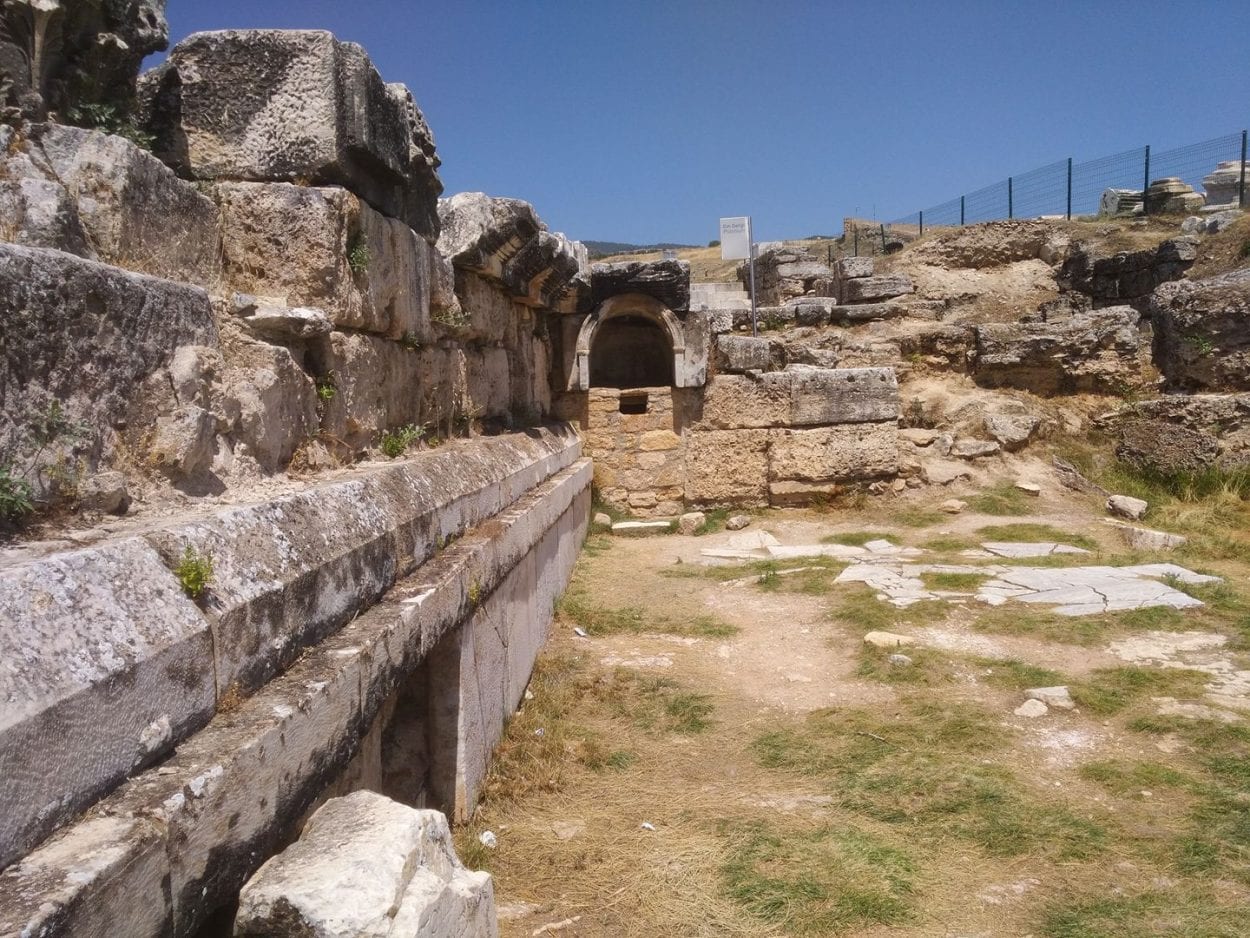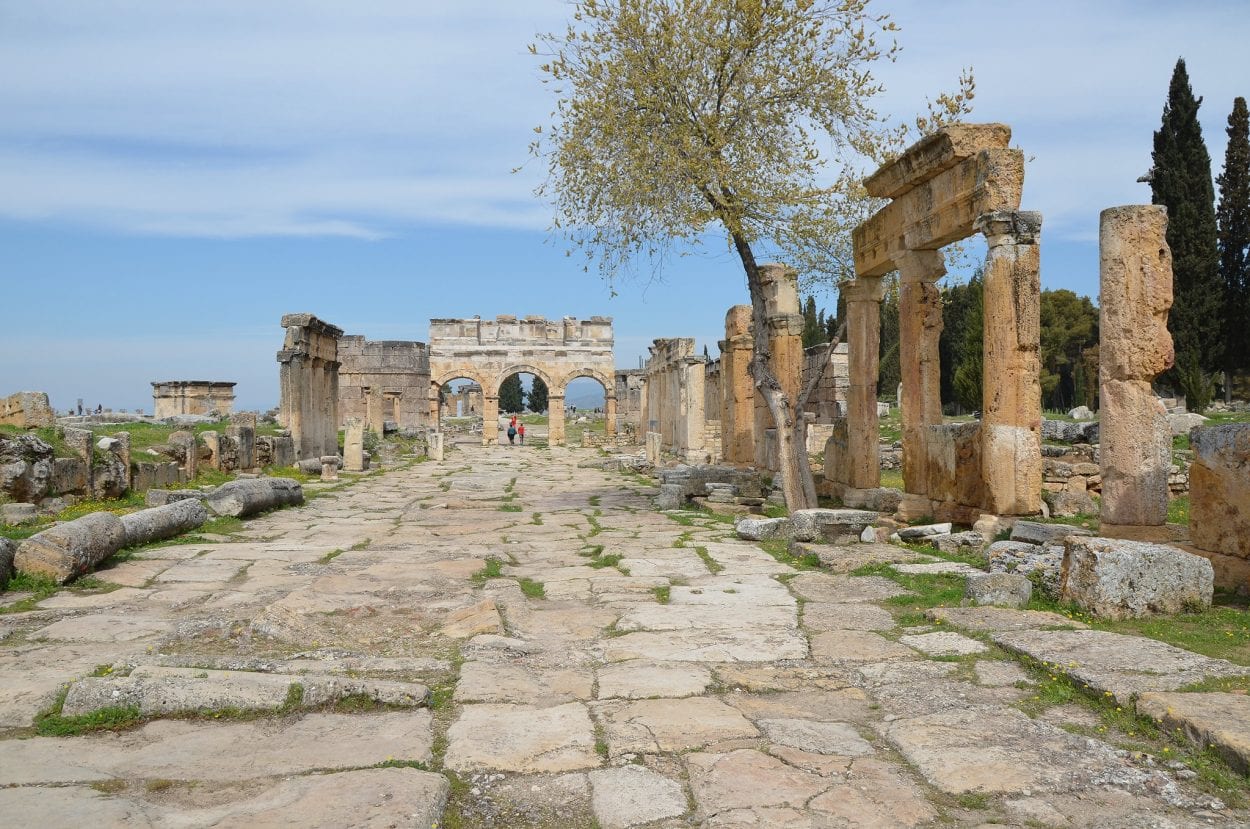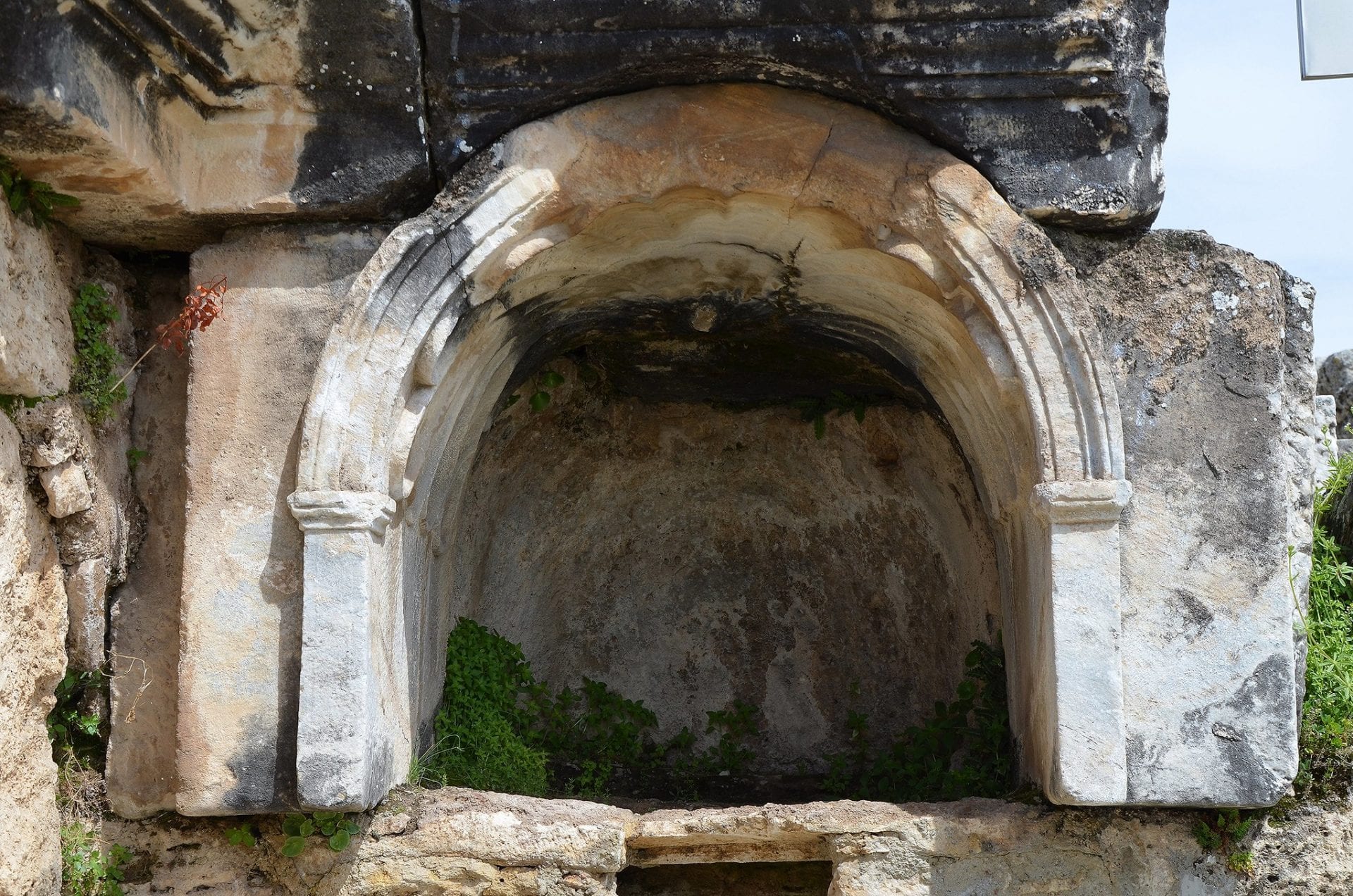The Hierapolis Ploutonion is a sacred sanctuary in the ancient Greco-Roman-Byzantine city of Hierapolis, located in classical Phrygia in the present-day province of Denizli, Turkey.
Hierapolis was founded as a thermal spa in the 2nd century BC by the Attalid kings of Pergamom. The city became a religious centre of healing, where the physicians believed that the nearby calcite-laden thermal springs had curative medicinal properties to heal the sick and chronic ailments.
With the death of the last Attalid king (Attalus III) of Pergamon in 133 BC, the city was bequeathed to the Roman Republic, and became part of the Roman province of Asia (also called Asiana).
The Hierapolis Ploutonion was constructed in dedication to Hades-Pluto and his wife Kore-Persephone during the early Imperial period between 100 BC to AD 100.

The sanctuary was positioned above a natural cave that emitted thermal waters and poisonous volcanic carbon dioxide (CO2), which pours forth as a suffocating invisible mist thought to be sent by Pluto, god of the underworld.
The cave was used for rituals by the Galli, eunuch priests of the goddess Cybele, who would descend through the “gateway to hell” into the chamber to demonstrate their divine protection and perform sacrifices.
The gateway was built into a wall of an open-aired arena, surrounded by raised seating for spectators called a theatron. Gas released from the cave formed on the arena floor, which during the night increased in concentration to form an asphyxiating CO2 “lake”. Scholars believe that the arena was used for animal sacrifices, which would be performed at dawn before the heat of the sun dissipated the CO2 concentration.

The Ploutonion was described by several ancient writers including Strabo, Pliny the Elder, Cassius Dio and Damascius, in which Strabo described: “Any animal that passes inside meets instant death. I threw in sparrows and they immediately breathed their last and fell.”
After the gateway was closed off by Christians as part of the purge of pagan ritualism, the ploutonion was abandoned in the 6th century until its rediscovery by archaeologists in 1965.
Header Image Credit : Carole Raddato – CC BY-SA 2.0





